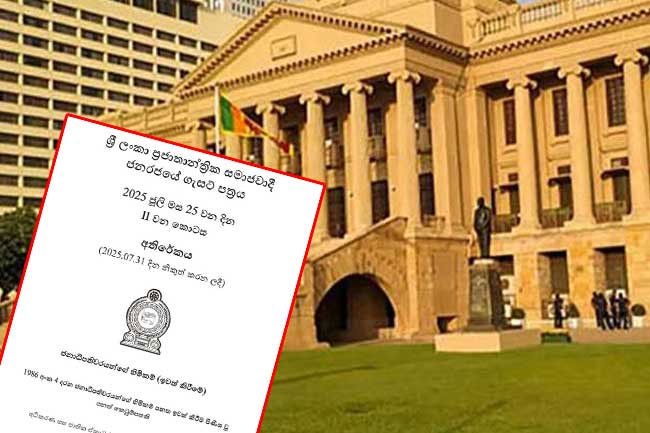
News Today: Presidents’ Entitlements Repeal Bill Sri Lanka constitutionality Supreme Court petition sparks national legal and political debate.
A significant legal challenge has emerged against the recently proposed Presidents’ Entitlements Repeal Bill, with a petition filed before the Supreme Court questioning its constitutionality. The Bill, which aims to abolish special privileges granted to former Presidents, their families, and retired Members of Parliament under the Presidents’ Entitlements Act, No. 4 of 1986, has sparked intense political and legal debate.
The Special Determination petition was submitted by Sri Lanka Podujana Peramuna (SLPP) activist Renuka Dushyantha Perera, who argues that the Bill cannot be passed solely through a two-thirds parliamentary majority. Instead, the petition contends that, under constitutional provisions, the Bill also requires approval from the public via a national referendum before becoming law.
Justice Minister Harshana Nanayakkara presented the Bill to Parliament, describing it as a move towards enhancing transparency, accountability, and public trust in governance. If passed, the legislation would strip away the entitlements currently enjoyed by former Heads of State, such as allowances, official residences, vehicles, and other benefits, as well as certain privileges extended to their immediate family members. Additionally, it would revoke specific concessions previously granted to retired MPs.
Proponents of the Bill argue that eliminating these entitlements is necessary to reduce unnecessary state expenditure and ensure equality before the law. Critics, however, believe the move may be politically motivated and could set a precedent for altering long-standing legal protections without adequate consensus.
The Supreme Court is expected to hear arguments on whether the Bill aligns with constitutional requirements and whether the rights of former leaders and MPs can be revoked without direct public approval. The decision will not only determine the fate of the Bill but could also influence future legislative processes involving constitutional amendments and public referendums in Sri Lanka.




Leave A Comment